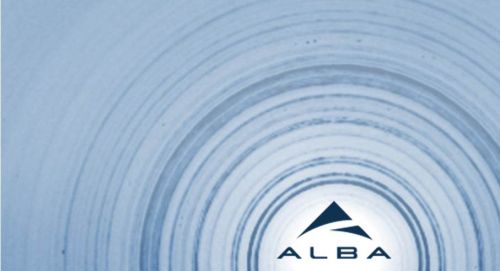
15/03/2018
Major Upgrade of an ALBA Synchrotron Beamline
Major Upgrade of an ALBA Synchrotron Beamline
ALBA synchrotron currently offers 8 beamlines. 8 beamlines mean 8 different potential ways to produce synchrotron light and 8 different ways to use it in 8 different laboratories located around the electron accelerator with the aim of determining the intimate structure of materials in a way that depends on their characteristics and the information required.
One of these beamlines is called NCD, which stands for Non Cristalline Diffraction: this beamline is used to get structural information about non crystalline materials, that is to say materials in which atoms are not perfectly ordered, such as polymers or proteins, for instance.
By the way, the NCD beamline is now NCD-SWEET and the new name has been announced this week by ALBA. But, of course, the change goes far beyond: the beamline devoted to Small Angle and Wide Angle X-ray Scattering (SAXS, WAXS) has gone through a major upgrade and now offers users further experimental possibilities and higher quality data.
Upgraded items in the SAXS WAXS experimental techniques (SWEET) involve a new monochromator system, a new photon counting detector, a new sample table and a beam conditioning optics with µ-focus and GISAXS options. This new GISAXS (Grazing, Incident SAXS) technique is now available and will be open to academic users in the next call for experiments.
One of these beamlines is called NCD, which stands for Non Cristalline Diffraction: this beamline is used to get structural information about non crystalline materials, that is to say materials in which atoms are not perfectly ordered, such as polymers or proteins, for instance.
By the way, the NCD beamline is now NCD-SWEET and the new name has been announced this week by ALBA. But, of course, the change goes far beyond: the beamline devoted to Small Angle and Wide Angle X-ray Scattering (SAXS, WAXS) has gone through a major upgrade and now offers users further experimental possibilities and higher quality data.
Upgraded items in the SAXS WAXS experimental techniques (SWEET) involve a new monochromator system, a new photon counting detector, a new sample table and a beam conditioning optics with µ-focus and GISAXS options. This new GISAXS (Grazing, Incident SAXS) technique is now available and will be open to academic users in the next call for experiments.
More news
05/02/2014
Award for the T-Systems Data Center located in the Barcelona Synchrotron Park
27/01/2014
Companies from the Barcelona Synchrotron Park will have a privileged access to the ICMAB scientific equipments
20/01/2014
The Catalan Institute of Nanoscience and Nanotechnology opens its new building
14/01/2014
Barcelona, the 4th smartest city in Europe
03/01/2014
The Vall d’Hebron Institut de Recerca becomes a UAB-affiliated research institute
28/11/2013
Visit of a Moscow City Council delegation at Barcelona Synchrotron Park (BSP)









